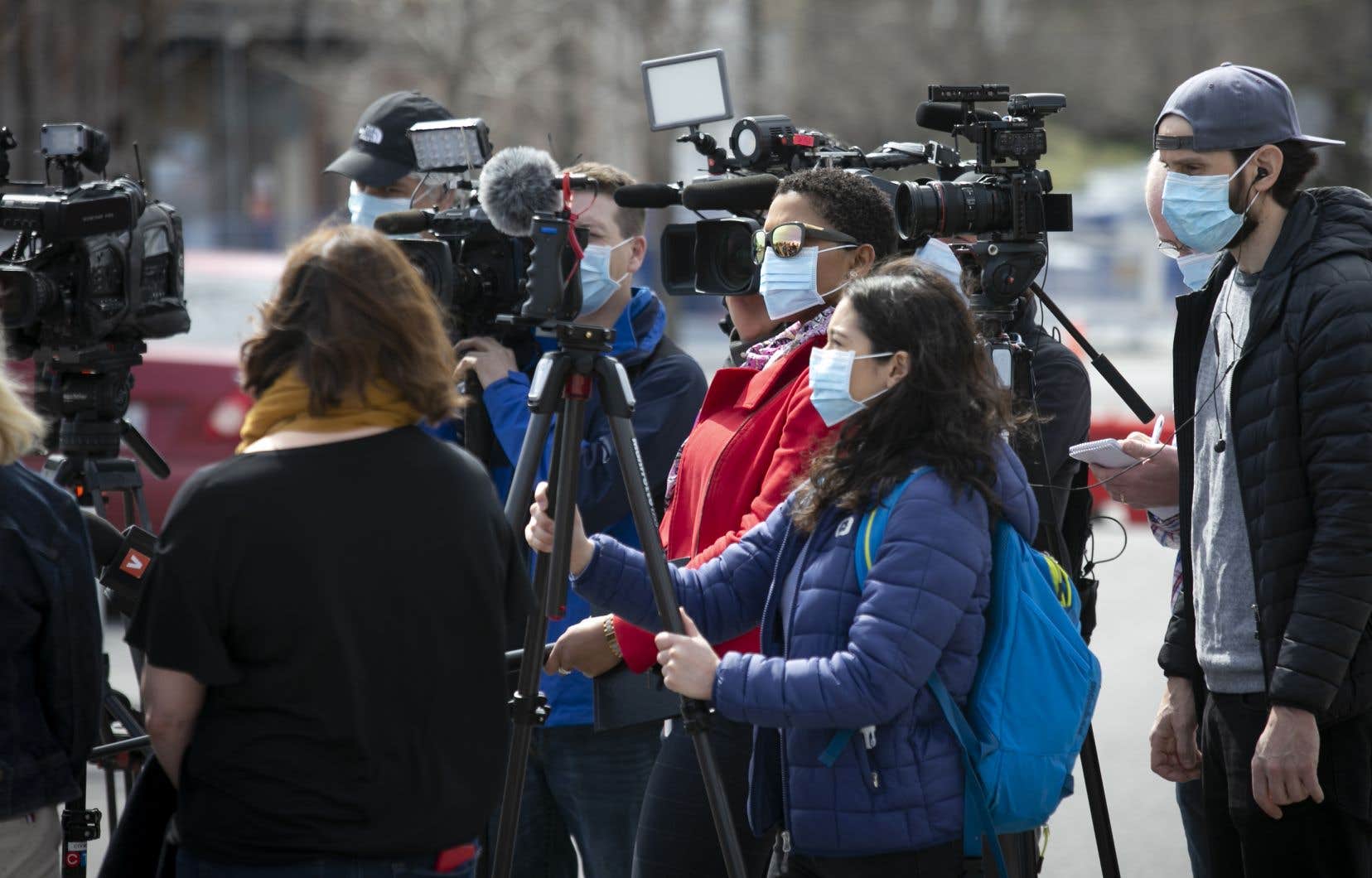Science journalism is like music: you have to learn it if you want to play it. No one would ever think of joining a professional orchestra by improvising as an oboe or guitarist.
Published by Francine Pelletier in duty Last January 26, a column (“Pandemic Revised and Corrected”) contains so many scientific inaccuracies that the newspaper’s editor-in-chief had to apologize to readers and make corrections two days later. This startled me. It was another example of a reality I find sad: journalists and columnists don’t all know how to read music, but find themselves in an orchestra anyway, sometimes by choice, sometimes by obligation.
Misunderstanding by some journalists of what makes science true (its method and accuracy) leads to inaccuracies in the texts, and goes so far as to put forth the opposite of what the science says.
In my hat as a science journalist I am writing these lines to get the attention of general journalists, who are sometimes called upon to cover science news. Colleagues, you could teach me a lot (I don’t have your background), but inspired by this last story, let me point out some mistakes to avoid when talking about science.
balance of view
First, the source of knowledge, science is a system, and a method for producing knowledge that is not self-evident. You have to start. Before a study in a scientific field is accepted, it must be verified and validated by other experts in the field (peers), who comment on the quality of the research and results. It can be approved or rejected at this point. Beware of studies that have not been reviewed (yet).
If the study passes this important milestone, it can “counter” other contradictory results. A discovery will become “scientific knowledge” only after “surviving” these experiments. It is the “bread and butter” of researchers around the world. We taught them. This, as well as other aspects of scientific research, lead to situations that may conflict with the journalistic principles you have learned.
Let’s start with a balance of views: the minister says something, we give the microphone to the opposition as well. But science does not evolve like politics. A scientific study says something about a topic; Yeah. If a second study contradicts this, what should a journalist do? As you can imagine, he can’t choose which of the two reinforces his first thoughts, which would be an intellectual deception. Rigor forces the two contradictory conclusions to be presented by acknowledging that science does not yet have a clear answer.
But suppose that time passes, research has accumulated, and five studies contradict the first. Here the weighting of the “views” familiar to you is necessary: there are no longer two “views”, but one that is more likely than the other. And when 35, 60, or 95 studies contradict the first, we’re talking about a scientific consensus against that first study, of course.
Briefly ? In science, all results must be taken into account to arrive at a reliable result. Yes, in my example, there is still contrary study, but that is the science – there are outliers, sometimes explainable, sometimes not, and scientists live well with that. That there is a contrary study and that it was mentioned in an article is not a problem. But using it to support a point, not to mention other and more conflicting results, is an outright lie.
Choose the experts
Expert status now. If we are talking about immunology, then we can not bring a psychologist … as Valerie Bourdy explains very well in a text recently published in News, Or former philosophy professor Pierre Blackburn, not all experts are created equal. For example, we cannot consider the word physicist, even a Nobel laureate, to be equivalent to the word immunologist when it comes to the epidemic. You have to put your trust in the right people, by checking their expertise according to the topic of the article.
The last point: the sources. There, I tell you nothing: if you mention the numbers, tell us where they come from. How do you check if it is correct if it is not? All facts presented by the journalist must be verifiable, even scientific facts that can have an impact on the development of the epidemic.
Some would say that a column is not held to the same ethical standards as a newspaper article. I answer simply: Is this a reason to provide misinformation? Is this a reason to share lies? Aren’t there enough of them everywhere these days? Does the average reader perceive this difference when reading a column?
Dear fellow journalists: Dealing with science is not easy, and I know something about that. Not all of you are trained in this, and it can lead to unintended errors, which can frankly pose risks to society. But you have powers: to require your administration to be trained to do it properly (the Association of Science Communicators offer training on the subject, as well as certain universities), or encourage them to hire science journalists (there are many of them). in economics, art, sports, etc.). For sensitive topics like the current pandemic, the health of society is at stake.
Let’s see in the video

“Subtly charming problem solver. Extreme tv enthusiast. Web scholar. Evil beer expert. Music nerd. Food junkie.”

